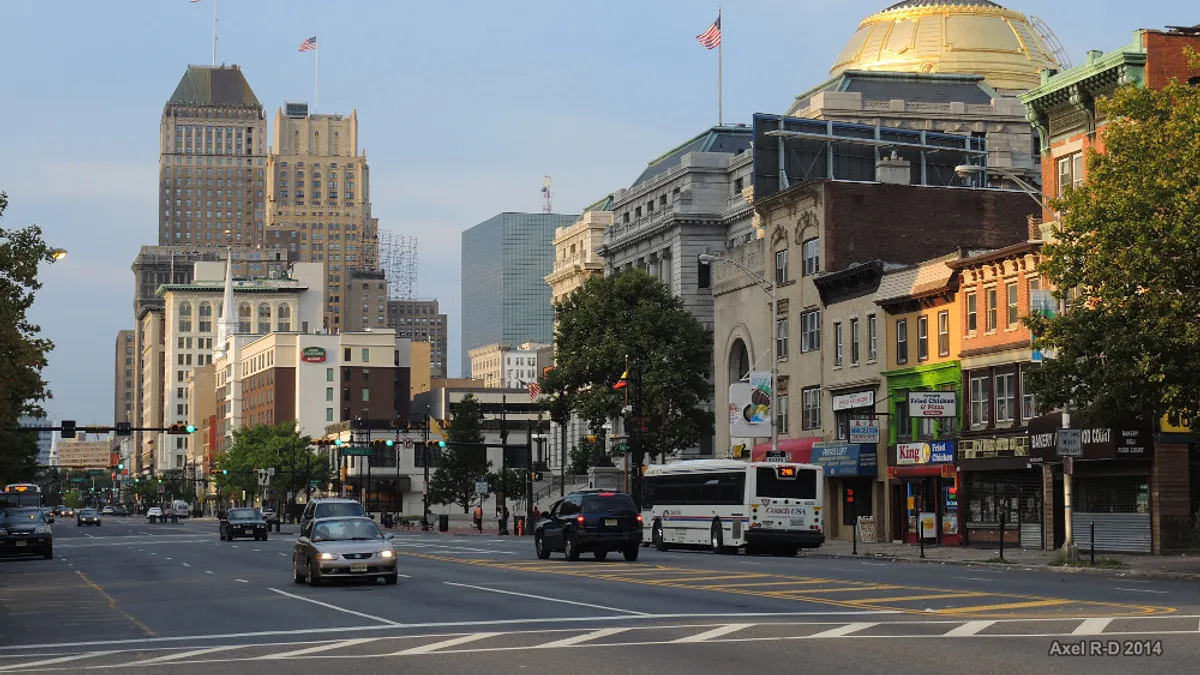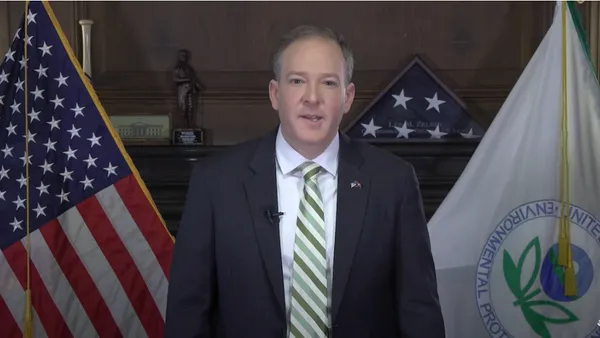Newark, NJ made national headlines in August 2019 when a group of demonstrators gathered outside the city's Prudential Center during the MTV Video Music Awards red carpet, chanting "We don't want no MTV, we want our water lead free."
By January 2020, Newark began the new year with reports of lower, but still elevated levels of lead in its water — a problem that tormented the city since 2017. And just a couple of months later, local officials faced not only a serious lead issue, but also the coronavirus (COVID-19) pandemic that would claim more than 680 lives locally and result in more than 13,000 cases.
Despite the obstacles presented by COVID-19 this year, Newark demonstrated it was determined to learn from its past, nearly completing its lead service line replacement program and also hosting largely peaceful protests in response to the May police killing of George Floyd.
Addressing racial justice with an eye on history
Protests in Newark in the wake of Floyd's killing peacefully passed close to the city's epicenter — the same place where demonstrations against police brutality in 1967 resulted in 26 deaths and hundreds of injuries.
Mayor Ras Baraka stood alongside protestors on the front lines of this year's demonstrations. And instead of deploying police in riot gear, a coalition of community groups, clergy and others were out helping to keep the peace and engage with protestors. That included the nonprofit Newark Community Street Team (NCST), which sent representatives to the protests to monitor activity and educate participants.
In Baraka's State of the City address, he spoke of the residents, protests organizers and activists "who knew that the headline would have read, 'Newark burns again,' instead of 'Thousands march for justice for George Floyd and an end to systemic racism.'"
The Newark City Council and the mayor also took steps to accelerate racial equity efforts. A June ordinance redirected 5% of the Newark Police Department's (NPD) funding — around $12 million — to create a permanent Office of Violence Prevention to manage all city anti-violence initiatives and programs.
A strong COVID-19 response
Newark was hard-hit by the COVID-19 pandemic’s first wave, seeing around 200 to 300 new cases a day in April. Baraka imposed shelter-in-place orders and instituted a multi-language education campaign on how to stop the spread.
The second wave this fall also prompted further local restrictions, with the citywide positivity rate reaching just above 11% at one point. To help ease the resulting financial burden on residents, the city implemented new programs, sent meals to thousands of residents and opened free testing centers.
Some of those efforts included providing up to $1 million in grants for between $5,000 to $50,000 for nonprofits, a $1 million investment in short-term rental housing for 300 vulnerable residents, and a $2 million small business grant program to provide cash for operating costs, payroll and other expenses.
"There's a level of excellence that exists within the city, there are a number of people who are college educated, who have dreams, who have hopes, who want to help to rebuild the city," said Tiara Moultrie, a policy associate at the New Jersey Institute for Social Justice (NJISJ).
Newark also ramped up its efforts to replace its lead water pipes during the pandemic, especially as the need for safe water was further highlighted by public health officials emphasizing the need for regular hand washing. In fact, the city's Lead Service Line Replacement (LSLR) Program replaced 15,000 of the city's more than 18,000 lead service lines with copper pipes.
That progress has meant replacing over 1,000 pipes a month, which serves as a good lesson to other cities with aging water infrastructure, according to Ernesto Freire, chief of staff at Bloomberg Associates, which consults on a pro bono basis with the city.
Moving forward
Newark's efforts this year go a long way to shaking off its reputation of struggling with crime, poverty and other issues, Freire said. "This is a moment that Newark is really surprising people, because they're the ones out there and that are leading the charge," he said.
Looking ahead, there is certainly more progress to come. Among other efforts, Baraka is pushing for experiments with a universal basic income (UBI) and during his State of the City address, he called for more development in parts of the city that have been largely neglected. He said that must change if the city is to continue making strides forward.
"If we intend to go to the next level in this city, this is where we must spend our time, our resources, our energy," Baraka said. "It affects our tax distribution, our social service costs, homelessness, drug addiction, homicide and aggravated assault rates."




 Read more
Read more






